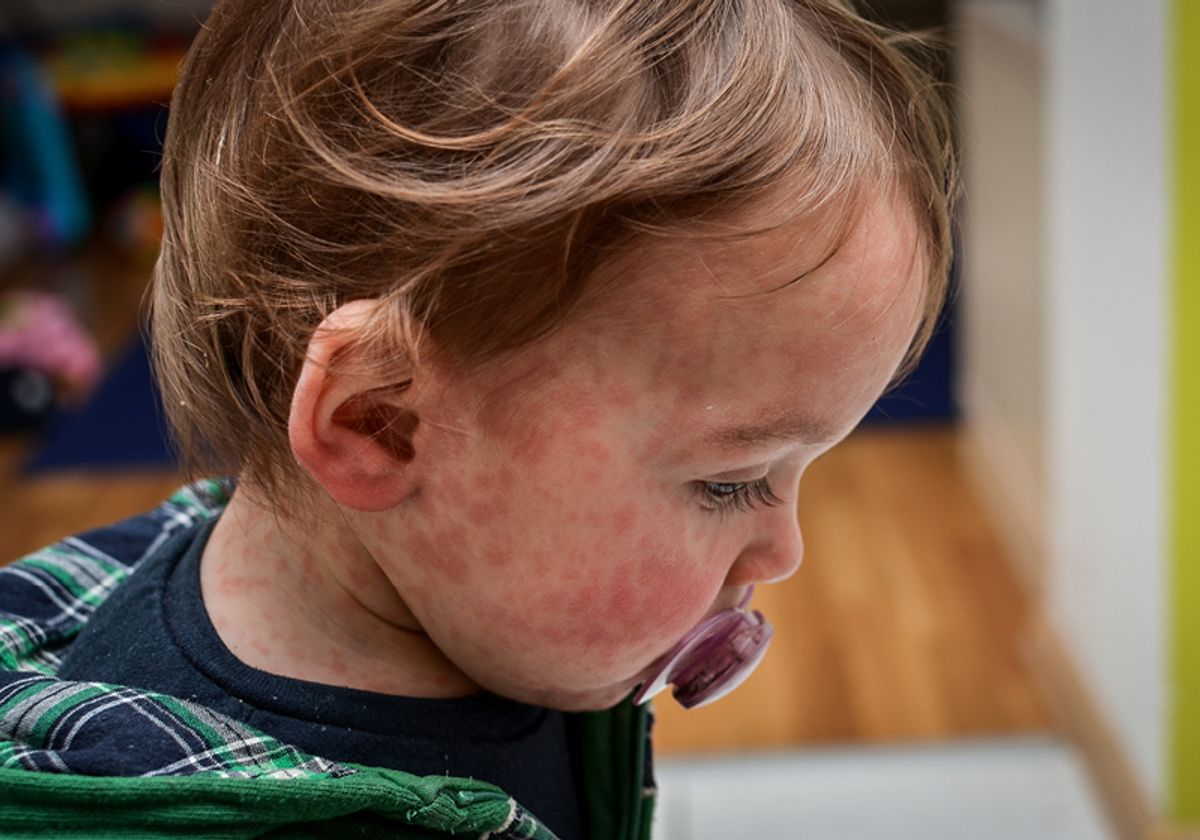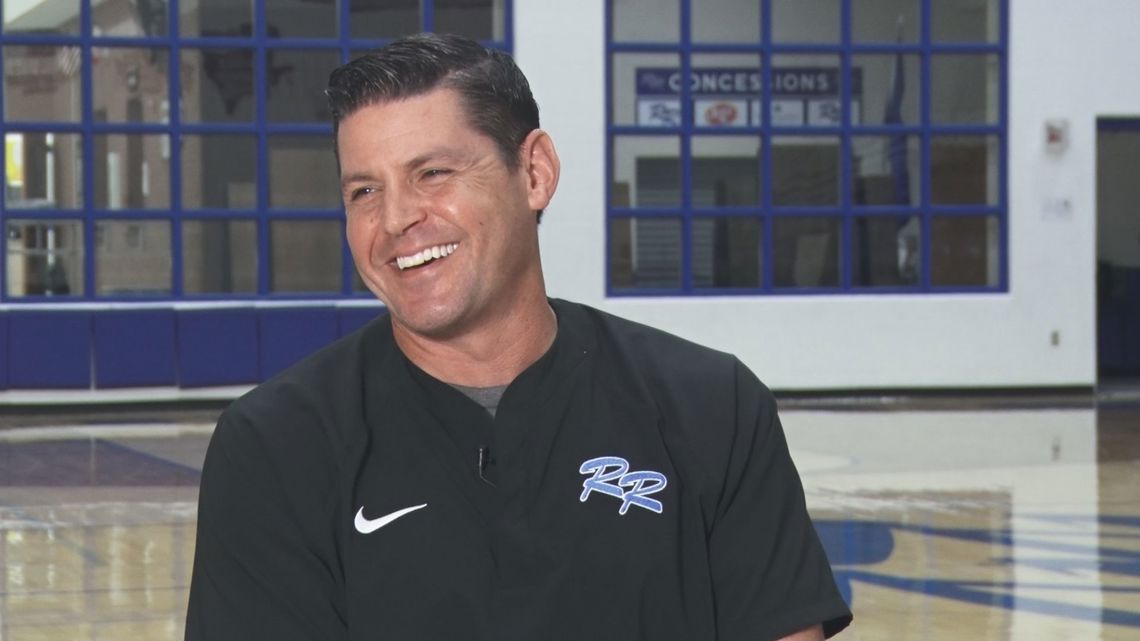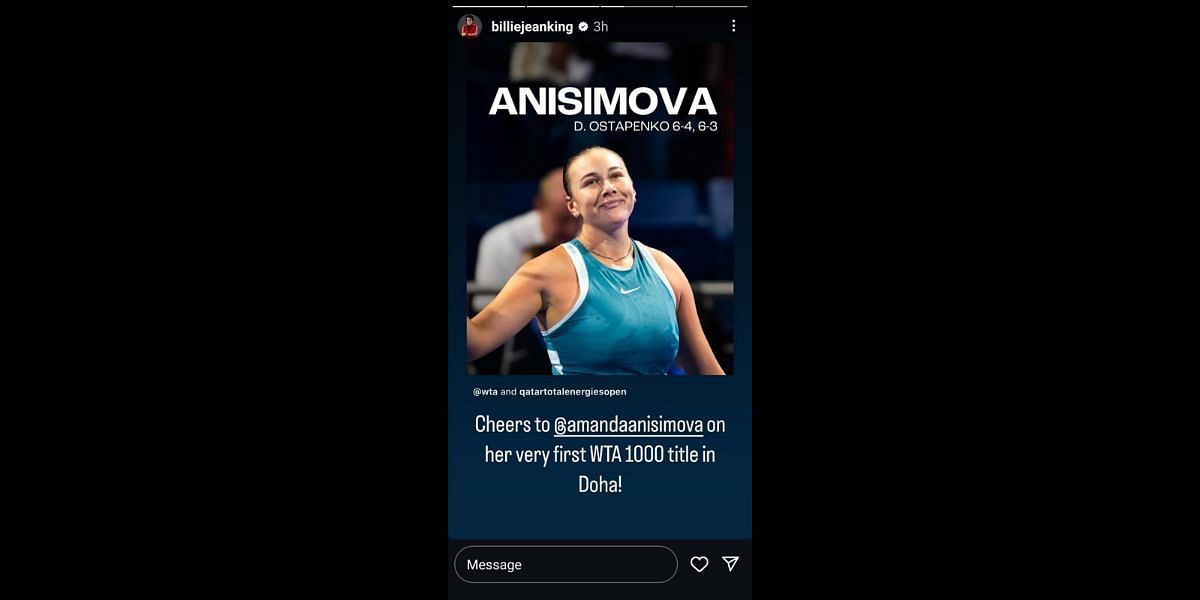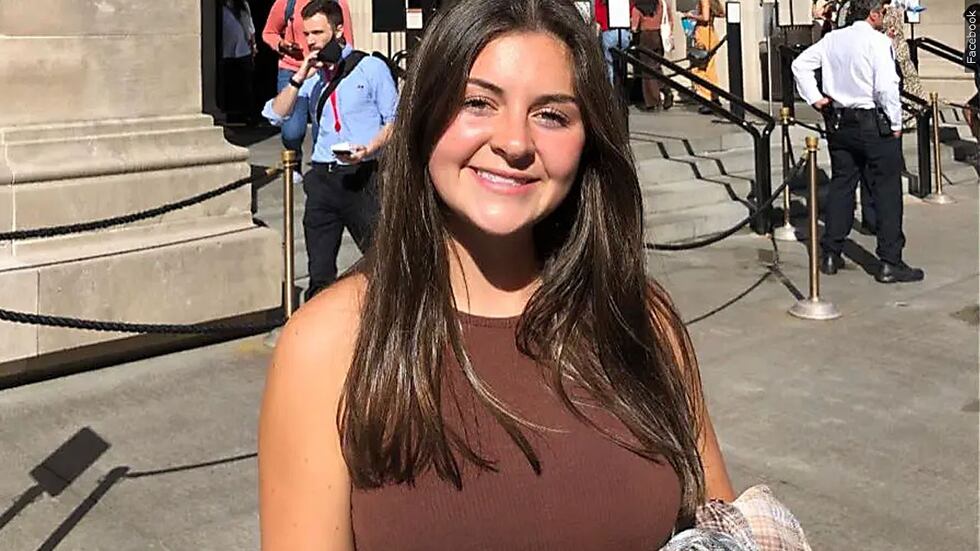Health
Track the spread of measles in Texas
Audio recording is automated for accessibility. Humans wrote and edited the story. See our AI policy, and give us feedback. Sign up for The Brief, The Texas Tribune’s daily newsletter that keeps readers up to speed on the most essential Texas news. The number of cases reported in Texas’ historic measles outbreak has risen to […]


Sign up for The Brief, The Texas Tribune’s daily newsletter that keeps readers up to speed on the most essential Texas news.
The number of cases reported in Texas’ historic measles outbreak has risen to 624 cases in 26 counties, as of April 22. Of those, 64 patients have been hospitalized and two school-aged children have died since the outbreak began in January.
More than half of the cases so far have occurred in Gaines County, where the first case was reported on Jan. 29. As of Tuesday, 27 more cases have been reported since the state’s last update on Friday. Bailey, which has two cases, is the latest county to be added to the outbreak list, bringing the total to 26.
The Texas Department of State Health Services updates the number of infections and other details about the West Texas outbreak every Tuesday and Friday. By mid-April, the state health agency’s response to the outbreak, which includes a public awareness campaign, testing and vaccination clinics, has cost $4.5 million.
The most effective way to prevent contracting measles is to obtain two doses of the the measles-mumps-rubella vaccine, which research has shown time and time again is safe. Side effects are mild and rare, according to health experts.
It is not known how the outbreak began. But this region includes pockets of high numbers of unvaccinated individuals.
What is measles?
Measles is a virus that spreads through respiratory droplets passed through the air by breathing, coughing and sneezing. It is one of the most contagious viruses transmissible between humans — 90% of unvaccinated people will get measles if they are exposed. People infected with measles are contagious four days before they begin showing rash symptoms, and the virus can stay active in the air for up to two hours, making hospitals, schools and day cares especially high-risk.
People infected with measles can experience high fever, cold symptoms like a cough or runny nose, watery eyes and a rash all over the body. While most people recover at home, it can lead to serious complications and even death, especially among young children, pregnant women and those with compromised immune systems.
Patsy Stinchfield, the former president of the National Foundation for Infectious Diseases, worked in pediatric medicine for 45 years. She oversaw three measles outbreaks in Minnesota during her career, and said they were among the sickest children she ever treated.
“They come into the emergency room and they are literally ragdolls hanging over their parents’ shoulders, limp, dehydrated, miserable,” she said. “They’re barely even crying, because they’re so dehydrated they don’t have tears.”
How do you prevent measles?
There is an extremely safe vaccine that is over 97% effective in preventing measles. The MMR vaccine protects from measles, mumps and rubella, while the MMRV vaccine also protects against varicella, or chickenpox.
Most people receive the first dose when they are 12 months old, and a second dose when they are around 5 years old, although that can be shifted earlier if there is an active outbreak.
If you are not fully vaccinated, or are unsure if you are fully vaccinated, you can get the first shot now and achieve a significant degree of immunity within two weeks. The second shot, which delivers 97% immunity, can be given 28 days after the first shot, according to the Centers for Disease Control and Prevention.
If you are unvaccinated and believe you’ve been exposed to measles within the last 72 hours, getting a vaccine can lessen the impact of the illness. People who cannot receive the vaccine, such as infants, pregnant women and severely immunocompromised people, may be treated with immunoglobulin within six days of exposure to lessen symptoms.
Once someone has contracted measles, the only treatment is managing symptoms and preventing more serious complications, such as pneumonia.
Since the measles vaccine was not a requirement to attend school until 1980, some older adults are questioning whether they have immunity.
Dr. Peter Hotez, the dean of the National School of Tropical Medicine at Baylor College of Medicine in Houston, has pointed to the Centers for Disease Control and Prevention recommendation that if people are unsure of their immunity, they should first check their vaccination records.
If there’s no record of measles immunity, individuals should get vaccinated with the measles-mumps-rubella (MMR) vaccine. According to the CDC, there’s no harm in getting another MMR vaccine, even if you may already be immune to measles.
The Centers for Disease Control and Prevention says outbreaks are more likely when the vaccination rate in a community falls below 95%.
Can you get sick if you’re vaccinated?
A small percentage of people who have been infected in this current outbreak report being fully vaccinated, according to DSHS.
While people who are fully vaccinated can still contract measles, they are not at risk for severe illness and are much less likely to spread the virus. According to the CDC, people with both vaccine shots, those who have previously had measles or those who were born before 1957 are presumed immune from measles.
Has anyone died during this outbreak?
On Feb. 26, a school-aged child, who was unvaccinated, died after being hospitalized the week prior, according to state officials. The child’s family lives in the outbreak area.
On April 3, an unvaccinated 8-year-old girl, who also lived in the outbreak area, died of measles, according to hospital officials.
State officials have not confirmed when the last person in Texas died from measles prior to 2025.
Where else in Texas have there been measles cases this year?
There have been four additional cases of measles this year that are not being counted in the above totals because they are not considered part of the West Texas outbreak. Two cases were reported in Houston in January, one was reported in February in Rockwall County involving an adult who had traveled internationally and another was reported in February in Austin involving an unvaccinated infant who became infected while traveling overseas. The baby’s parents were vaccinated and local officials do not believe anyone else locally had been exposed.
Austin officials said it was its first measles case in 24 years.
“The time we have been preparing for is here,” Austin Mayor Kirk Watson said during a news conference. “I want to emphasize to everyone listening that vaccination remains the best defense against this highly contagious and deadly disease.”
Watson said there is an effort to raise the vaccination rate in Travis County, including through low-cost or free programs like Shots for Tots, Big Shots, and mobile clinics. Travis County had the lowest percentage of kindergarteners with the measles vaccine — 89.6% — among Texas counties with at least 100,000 people, according to 2023-24 state data.
“We are here to simply say measles can kill, ignorance can kill, and vaccine denial definitely kills,” U.S. Rep. Lloyd Doggett said during the news conference.
Do we know how measles arrived in Gaines County?
Texas Department of State Health Services officials say they do not know that information yet.
I thought we fixed measles. What happened?
The measles vaccine is one of the great achievements in modern medicine. It is so effective, and was so widely adopted, that the U.S. declared measles eliminated in 2000. But as anti-vaccination sentiment increased, vaccination rates dropped and the disease made a resurgence.
While the vast majority of children in the U.S. get the MMR vaccine on time, certain communities have shied away from it for religious or cultural reasons, creating pockets of vulnerability for the virus to take hold. In 2017, Minnesota saw a measles outbreak in their growing Somali community, and in 2019, measles tore through the Orthodox Jewish community in New York City and neighboring counties, eventually infecting more than 650 people.
In Texas, the virus has concentrated in the Mennonite community in Gaines County. One of the county’s local public school districts, with only 143 students, has the highest school vaccine exemption rate in the state — 48% of Loop school district students have conscientious exemptions from required vaccinations. In 2023-24, less than half of all Loop kindergartners — 46% — were given the measles-mumps-rubella vaccine, according to state data.
Two other school districts in Gaines County had higher vaccination rates. Seagraves, with 512 students, had 94% of its kindergartners vaccinated against measles and Seminole, with 2,976 students, had 82% of its kindergartners vaccinated.
In tight-knit communities with low vaccination rates, a measles outbreak should be “somewhat expected,” said Kathleen Page, an associate professor in the Division of Infectious Diseases at Johns Hopkins University School of Medicine.
But vaccination rates have been dropping nationally and in Texas, well beyond these communities that have traditionally abstained, leaving a wider swath of the population open to infection. In 2019, almost 97% of Texas kindergartners were vaccinated against measles, compared to 94% in 2024, according to the CDC.
When was the last time Texas had a measles outbreak?
In 1992, Texas had an outbreak that grew to 990 cases. That was the last outbreak larger than this. Although in 2013, there was an outbreak with 27 cases and in 2019, an outbreak with 23 cases.
This is a 99.9% decrease from the pre-vaccine high point, in which almost 86,000 Texans got measles in 1958.
What do we know about Gaines County’s Mennonite community?
The tight-knit Mennonite community in Gaines County, mostly centered around the town of Seminole, have been hardest hit. Members of this Anabaptist religious order aim to maintain separation from the modern world, in language, school and dress.
They settled in West Texas from Mexico in 1977, drawn there because “large blocks of land were available, population was not concentrated, and private schools were not heavily regulated,” according to the Texas State Historical Association.
Many of the families home-school or send their children to small private schools, and do not maintain regular contact with the health care system, Texas Department of State Health Services spokesperson told Anabaptist World. Mennonites, and their Anabaptist brethren, the Amish, had very low uptake of the COVID vaccine.
Who is most vulnerable to measles?
Infants under the age of 12 months who haven’t yet been vaccinated, pregnant women and immunocompromised children are extremely vulnerable to measles and should take extra precautions during an outbreak.
In Ector County, where an infant fell ill with measles, health department director Garcia commended the family for taking action to get their child tested.
“A lot of times measles can be hard to detect as a parent,” Garcia said. “This mother did everything I would do – she took him to the doctor, and as he didn’t get better, she took him back. That’s when they did the testing.”
These vulnerable populations are not protected by the vaccine the way most children and adults are, so they’re relying on everyone else to keep them safe, Stinchfield said. Especially when it comes to babies, “they’re voiceless,” she said.
“They can’t say, ‘Everyone get vaccinated.’ They don’t get a say, but they’re the ones that are the first to suffer the consequences,” she said. “The community around them are the ones that are supposed to put those shields on and encircle them and protect them by protecting themselves.”
How bad can measles symptoms get?
Dozens of Texans have been hospitalized with measles in Texas. Some have been able to be treated in Gaines County, while others have been sent to Lubbock for a higher level of care, Albert Plinkington, CEO of the Seminole Hospital District, told Texas Standard.
Many people hospitalized for measles can be treated for dehydration and fever, and then sent to recover at home. But in serious cases, children may need higher levels of care. Stinchfield said she had a patient end up on a ventilator in the intensive care unit for 15 days. They survived, but will have lifelong medical complications due to the damage to their lungs.
“Those of us who have stood next to that child in an ICU fighting measles, need to express to parents how devastating it is for the parent and how much regret they have,” she said.
What are state and local agencies doing to manage this?
The Texas Department of State Health Services is working with the South Plains Health District and Lubbock Public Health, as well as local hospitals and health care providers, to manage the outbreak. The state is assisting with contact tracing, in which they try to identify who may have been in contact with someone who tested positive, and letting them know they have been exposed.
They are encouraging unvaccinated people who have been exposed to isolate for 21 days, and if it is within 72 hours of the exposure, get vaccinated to offset some of the symptoms. The South Plains Public Health District is offering measles vaccines at their clinic in Seminole. Approximately 100 people had been vaccinated in recent days, a DSHS spokesperson said in February.
Centers for Disease Control and Prevention also announced on March 4 that officials were in Texas to help local leaders respond to the outbreak. Those extra personnel will provide support for one to three weeks.
Suddenly standing up a measles response takes a huge amount of time and effort from state and local health authorities. It can cost between $2.7 million and $5.3 million to respond to a measles outbreak, according to the CDC, compared to the relatively negligible cost of vaccinations.
“If you were to put this in front of ‘Shark Tank,’ they’d say, ‘Wow, this is the best deal. We definitely need to do something that is so successful, so cost effective and averts spending money that we don’t want to spend, and saves lives. Let’s go for it,’” she said. “That’s the way that our legislators need to think about this as well.”
By mid-April, the state health agency’s response to the outbreak, which includes a public awareness campaign, testing and vaccination clinics, has cost $4.5 million.
Disclosure: Texas State Historical Association has been a financial supporter of The Texas Tribune, a nonprofit, nonpartisan news organization that is funded in part by donations from members, foundations and corporate sponsors. Financial supporters play no role in the Tribune’s journalism. Find a complete list of them here.
Tickets are on sale now for the 15th annual Texas Tribune Festival, Texas’ breakout ideas and politics event happening Nov. 13–15 in downtown Austin. Get tickets before May 1 and save big! TribFest 2025 is presented by JPMorganChase.
Health
Coach's Corner
Robinson head coach Kevin Brown returns home, bringing college experience and a mission to tackle mental health while shaping young lives on and off the field. ROBINSON, Texas — When Kevin Brown took over as Robinson’s head football coach, it felt more like a homecoming than a new job. Born and raised just five minutes […]



Robinson head coach Kevin Brown returns home, bringing college experience and a mission to tackle mental health while shaping young lives on and off the field.
ROBINSON, Texas — When Kevin Brown took over as Robinson’s head football coach, it felt more like a homecoming than a new job. Born and raised just five minutes down the road in Hewitt, Brown stepped into the role already familiar with the community, its culture—and even its kids.
“Oh, it’s been great,” Brown said. “Coach [Lonnie] Judd, the athletic director, and I go way back. I’m from here, grew up in Hewitt, so five minutes down the road. I kind of knew the lay of the land and a lot of the kids before I got here. Coach Judd gave me the heads-up and told me what to expect. It’s been a seamless transition.”
Brown brings with him a wealth of football experience. He played college ball at TCU before transitioning into coaching, with stints at UTSA and Texas State, where he helped develop talent at the collegiate level.
While football is at the core of Brown’s role, it’s clear his mission runs deeper than playbooks and Friday nights. For Brown, coaching is personal—and increasingly, it’s about protecting the mental well-being of his players.
“I care more about the person than I do the player,” Brown said. “That hadn’t always been the case in my life. I’m passionate. I’m hard on them, but it’s because I want to make them better.”
His commitment to mental health awareness started a few years back when he began teaching at Boerne Champion High School. On his first day in the classroom, with no lesson plans in hand, he improvised by asking each student to share their personal story: history, heroes, highlights, hardships—and one thing they wanted to learn about health.
“About 75 percent of them said they wanted to learn about mental health,” Brown said. “In high school, you never heard about that when I was at Midway. Nobody ever talked about it.”
That eye-opening moment sent Brown on a deeper dive into youth mental health. Books like The Anxious Generation shaped his understanding of the growing challenges today’s teenagers face.
“We’ve got a mental health crisis with this age group,” Brown said. “And you know, this is a battleground. I want to dig my heels in and fight.”
Now, he’s doing just that at Robinson—bringing not just football knowledge, but heart, perspective and a focus on building strong young men, on and off the field.
This story is a part of the series, Coach’s Corner: Next Man Up, featuring in-depth interviews with new head coaches across Central Texas. The full interview with Brown is available on the KCEN 6+ App. Get to know more about Groesbeck’s head coach, Nelson Kortis, on Tuesday.
Health
Taylor Priestley earns IWLCA Community Awareness Award
Story Links NORTHBOROUGH, Mass. – The IWLCA (Intercollegiate Women’s Lacrosse Coaches Association) announced Taylor Priestley as one of just three student athletes across collegiate lacrosse to earn the 2025 IWLCA Community Awareness Award. The individual Community Awareness Award recognizes those student-athletes who have contributed significantly to their community in a given academic year. These students have given their time […]


NORTHBOROUGH, Mass. – The IWLCA (Intercollegiate Women’s Lacrosse Coaches Association) announced Taylor Priestley as one of just three student athletes across collegiate lacrosse to earn the 2025 IWLCA Community Awareness Award.
The individual Community Awareness Award recognizes those student-athletes who have contributed significantly to their community in a given academic year. These students have given their time and energy to support and develop athlete-community relations and have distinguished themselves from their peers.
Division II – Taylor Priestley, Northern Michigan University
Priestley, a senior Education major at Northern Michigan University, has earned the Division II Community Awareness Award for her groundbreaking leadership in promoting mental health awareness among student-athletes. Through her tireless work, Taylor has created impactful, sustainable programs that are transforming the campus culture at NMU. Taylor is the founder of the Beyond an Athlete blog, a platform that allows student-athletes to share their mental health journeys and stories in their own words. As co-founder of Cat’s Connect, NMU’s first student-athlete mental health awareness organization, Taylor has connected students with resources from national nonprofits like Hilinski’s Hope, Morgan’s Message, and The Hidden Opponent, while also securing university support and grant funding to expand their reach.
Her leadership has driven major initiatives including Student-Athlete Mental Health Week, QPR suicide prevention training, and multiple mental health awareness games for NMU athletics. She personally organized events like yoga sessions, therapy dog visits, and community service collaborations, all with a focus on wellness and destigmatizing mental health conversations. Taylor also played a key role in organizing a landmark event: “Tyler Talk: A Conversation with the Hilinskis“, which brought the founders of Hilinski’s Hope to NMU for the first time, offering support and education to over 300 athletes, coaches, and local community members.
Balancing all of this during her competitive season, Taylor has demonstrated an unwavering commitment to building a healthier, more compassionate athletic environment. Her passion, initiative, and impact make her a truly deserving recipient of the Community Awareness Award.
The full release from the IWLCA can be found here.
Hear from head coach Lindsey (LeMay) Majkrzak
“I am so proud of and overjoyed for Taylor for receiving this award. There is no one more deserving. She has made it her mission during her time here at NMU to make her community comfortable talking about athlete mental health and confronting their own struggles so that they may seek help.
She made this mission a reality through years of getting involved and working to put events into action that would help spark change. This work started with herself, then spread to our program (coaches included), and then to our athletic department as a whole.”
Community service accomplishments:
Priestley is a co-president of the NMU athlete mental health student organization Cat’s Connect, through this student organization she helped plan and accomplish the following:
– Separated Cats Connect from SAAC (the Student Athletic Advisory Committee) and turned it into an NMU student organization to access greater resources and impact more students.
– Planned and accomplished the first student-athlete mental health week at NMU in tandem with the national student athlete mental health week through the mental health awareness organization Hilinski’s Hope. The NMU student athlete mental health week included a different theme and activity for each day of the week all planned and organized by Cats Connect and SAAC.
– Organized several mental health awareness events at sporting events including Volleyball, Women’s Wrestling and her own team Women’s Lacrosse.
– Organized and accomplished bringing an outside speaker to NMU to speak to the athletic student body, which was one of the original goals of the creation of Cats Connect. The outside org was the Hilinski’s of Hilinski’s Hope. The Hilinskis met with coaches, staff, and community members during their visit to Marquette, and ended their trip with a presentation to student athletes. The event was the first of its kind on campus.
Outside of Cats Connect:
Priestley organized a mental health awareness week for the lacrosse team leading up to our mental health awareness game. Each day, the lacrosse team listened to a presentation about a different mental health organization and the resources it provided. We also completed a unique mental health activity during this week and created an individualized mental health awareness shooting shirt to wear for our mental health awareness game.
Taylor is the multi-year representative of the mental health organization The Hidden Opponent for NMU. Through this role she has been able to provide resources and content on athlete mental health awareness to athletes on her team and throughout NMU athletics.
Taylor created a student athlete mental health awareness blog called “Beyond an Athlete”. This blog has allowed her to give her fellow athletes a platform to tell their stories outside of sport. This blog is posted to the Center of Community and Connection website under “Beyond an Athlete”, and is reposted to the SAAC social media pages.
“Taylor will leave NMU better than she found it when she graduates in December,” added head coach Majkrzak, “and then it will be our job to continue this important work with the tools that she’s left us.”
Hear from Emily Meier – Director of Case Management Services of the NMU CARE Team
CARE stands for “Case Administration and Resource Education,” but in simple terms, the CARE Team is a group of people who are available to support and guide any student at NMU who is going through a difficult time – whether it be academically, emotionally or psychologically.
The CARE Team is different than our Counseling and Consultation Services; CARE Team members work with you using a case management model to help you achieve your desired outcome. Think of them as your personal champion to help guide you through whatever you’re dealing with, while keeping you accountable to the commitment you made to yourself.
You can utilize the CARE Team as little, or as much, as you need! The CARE Team is not a disciplinary entity, it’s a collection of people available to support your wellbeing. Led by Emily Meier and comprised of personnel with expertise in student affairs, academic affairs, human resources, mental and physical health, student conduct and campus safety, the CARE Team is there to address the unique needs and challenges students may face.
“Taylor’s advocacy got Cats Connect off the ground in Winter 2025 as an official student organization that supports students’ complete wellbeing,” adds Meier. “As a co-president, Taylor was instrumental in setting up a QPR training for student athletes, bringing the Hilinski’s Hope speakers to campus, and collaborating with Green Athletes to promote sustainable activities for athletes.
While Cats Connect was under the SAAC leadership board in 2024, Taylor supported her fellow athletes with Student Athlete Mental Health Awareness Week programming and care packages and starting the blog “Beyond an Athlete” to promote more discussion around student athletes’ identity beyond their sport; Taylor passed her blog onto another athlete who will continue Taylor’s mission of giving athletes a voice.
Her planning, dedication, and passion for wellbeing led to Cats Connect to have a monthly focus for events and speakers on each dimension of wellbeing throughout the 2025-26 school year.”
Health
NCAA WOMEN'S LACROSSE
ALBANY, N.Y. — Ava Poupard, a senior at the University at Albany, has been named as one of the four collegiate award recipients for 2025 by the Capital District Sports Women of the Year organization. Poupard, who competes in lacrosse, will be recognized at the Capital District Sports Women of the Year Awards Gala on […]



ALBANY, N.Y. — Ava Poupard, a senior at the University at Albany, has been named as one of the four collegiate award recipients for 2025 by the Capital District Sports Women of the Year organization. Poupard, who competes in lacrosse, will be recognized at the Capital District Sports Women of the Year Awards Gala on […]
Originally Published:
Health
Doctor Reveals 4 Sneaky Reasons You Might Have High Pressure
High blood pressure is a surprisingly common condition, but it’s also one that goes under the radar far too frequently. Also called hypertension, high blood pressure may affect almost half of all adults in the U.S. But many people don’t even know they have the condition. “Blood pressure is one of the most important vital […]


High blood pressure is a surprisingly common condition, but it’s also one that goes under the radar far too frequently.
Also called hypertension, high blood pressure may affect almost half of all adults in the U.S. But many people don’t even know they have the condition.
“Blood pressure is one of the most important vital signs we have,” NBC News medical reporter Dr. Akshay Syal explained on a July 9, 2025, segment on the TODAY show. “Every time you go to a doctor’s office, the reason we check it is because it gives us a little window into your health.”
High blood pressure can come with serious symptoms. And, if left untreated, it also raises your risk for many other conditions down the line, including stroke, heart attack, heart failure and kidney disease.
That’s why it’s important to be aware of your blood pressure numbers and your risks for high blood pressure — even if you don’t think you have hypertension.
Lesser-Known Reasons for High Blood Pressure
Many factors can contribute to an increase in blood pressure, Syal said. That includes genetics, a sedentary lifestyle and high stress levels.
But there are also some risk factors for high blood pressure that aren’t as well known, Syal said.
Sleep apnea
Sleep apnea is a condition that occurs when your airways become blocked during the night, often causing loud snoring along with headaches in the morning, irritability or mood swings, dry mouth when you wake up and other symptoms.
That affects blood pressure because, “at night, if your oxygen levels drop, your heart has to work a little bit harder to get oxygen to those organs,” Syal explained.
He also highlighted these lesser-known contributors to high blood pressure:
- Loneliness
- Pain medication use (particularly non-steroidal anti-inflammatory medications)
- Excessive sugar consumption
How to Manage High Blood Pressure
Normal blood pressure is 120/80, Syal said. “And, honestly, the lower we can get, around 115/75, that’s what we love,” he added. If either of your blood pressure numbers is higher than 120/80, “you really want to talk to your doctor about controlling it,” Syal noted.
“Every organ system in our bodies has arteries and veins,” Syal said. “And that means our blood pressure leads to all of these organs.” So, if you think you might have high blood pressure, “You really want to get this under control as soon as you can,” Syal said.
That may sound scary, but with a doctor’s guidance, there are concrete ways to get your blood pressure on the right track.
“When we have patients in our office, we say, ‘Your blood pressure is high, but there’s something you can do about it,’” Syal said.
Those strategies might include increasing your physical activity, limiting ultra-processed or sugary foods, reducing sodium in your diet, implementing stress management techniques and prioritizing getting good sleep.
Some people may also benefit from medication to manage their blood pressure. Your doctor might also recommend monitoring your blood pressure at home to keep tabs on how you’re improving.

Health
Congratulations Pouring In For U.S. Tennis Star Amanda Anisimova
Congratulations Pouring In For U.S. Tennis Star Amanda Anisimova originally appeared on The Spun. In 2023, Amanda Anisimova took a break from professional tennis to focus on her mental health. Fast forward to this Tuesday, and she picked up the biggest win of her career. Advertisement Advertisement Advertisement On Tuesday afternoon, Anisimova defeated Anastasia Pavlyuchenkova 6-1, […]


Congratulations Pouring In For U.S. Tennis Star Amanda Anisimova originally appeared on The Spun.
In 2023, Amanda Anisimova took a break from professional tennis to focus on her mental health. Fast forward to this Tuesday, and she picked up the biggest win of her career.
Advertisement
On Tuesday afternoon, Anisimova defeated Anastasia Pavlyuchenkova 6-1, 7-6 (9) to become a 2025 Wimbledon semifinalist. This is the first time in her career that she has reached the semifinals of a Grand Slam tournament. Additionally, she became the youngest American Wimbledon semifinalist since Serena Williams in 2004.
At 23 years old, Anisimova has proven she’s a legit threat to become a Grand Slam champion.
“I mean, its been an extraordinary year for me. So many highs. It’s just been such a ride, and I’ve been enjoying every step of the way,” Anisimova said following her win over Pavlyuchenkova. “Even times like today, when you’re not sure you’re going to cross the finish line, I keep reminding myself to enjoy the moment.”

Jul 6, 2025; Wimbledon, United Kingdom; Amanda Anisimova (USA) waves to the crowd after her match against Linda Noskova (CZE)(not pictured) on day seven of The Championships Wimbledon 2025 at All England Lawn Tennis and Croquet Club.Geoff Burke-Imagn Images.
Over the past few hours, tennis fans in the United States have celebrated Anisimova’s incredible comeback.
Advertisement
“What an accomplishment. Congrats,” one person said following Anisimova’s win.
“Mental health breaks aren’t failures – they’re strategic resets. Amanda stepped away to rebuild her foundation, not her ranking. That’s championship thinking,” a second person wrote.
“From rock bottom to Centre Court. Amanda Anisimova just turned a comeback into a statement. Rankings don’t measure heart,” another fan said.
“I love this! It’s so essential for everyone to take mental health seriously, even if you’re an athlete. Great job, Amanda,” a fourth person commented.
Advertisement
Next up for Anisimova is a showdown with world No. 1 Aryna Sabalenka. They faced off in the French Open in June. Sabalenka won that match 7-5, 6-3.
We’ll see if Anisimova continues her magical run at Wimbledon and books a spot in the final.
Related: Tennis Star Aryna Sabalenka Turns Heads In Stunning Vacation Photos
Congratulations Pouring In For U.S. Tennis Star Amanda Anisimova first appeared on The Spun on Jul 9, 2025
This story was originally reported by The Spun on Jul 9, 2025, where it first appeared.
Health
Mental health evaluation ordered for Venezuelan man convicted of killing Laken Riley
ATLANTA (Atlanta News First/Gray News) – The Venezuelan man convicted of killing a former University of Georgia student and whose trial set off a national immigration debate during a presidential election year has been ordered to undergo a mental health examination. Athens-Clarke County Superior Court Judge Patrick Haggard, who oversaw Jose Ibarra’s bench trial and […]


ATLANTA (Atlanta News First/Gray News) – The Venezuelan man convicted of killing a former University of Georgia student and whose trial set off a national immigration debate during a presidential election year has been ordered to undergo a mental health examination.
Athens-Clarke County Superior Court Judge Patrick Haggard, who oversaw Jose Ibarra’s bench trial and sentenced him to life in prison, has ordered the state Department of Behavioral Health and Developmental Disabilities to conduct the exam using a certified Spanish interpreter.

This past November, Ibarra was found guilty in the February 2024 murder of Laken Riley, whose body was found on the University of Georgia campus after she went missing following a morning run.
Riley was a nursing student at Augusta University at the time of her death.
Ibarra was sentenced to life in prison without the possibility of parole on one count of malice murder, life in prison without the possibility of parole on one kidnapping charge, 20 years on one count of aggravated assault, 12 months in a county jail on one count of hindering an emergency telephone call, 12 months in a county jail on one count of tampering with evidence and five years in prison on one count of Peeping Tom.

The Venezuelan immigrant who entered the United States illegally had waived his right to a jury trial, meaning Haggard heard and decided the case.
Haggard’s order, filed July 3, in the Superior Court of Athens-Clarke County, instructs the department to determine if Ibarra was “capable of understanding the nature and object of pretrial proceedings, including waiver of jury trial rights.”
Less than a month after their client’s conviction, Ibarra’s attorneys filed a motion for a new trial. In their motion, Ibarra’s legal counsel said the verdict was “contrary to law” and “contrary to evidence.”
Copyright 2025 WANF via Gray Local Media, Inc. All rights reserved.
-

 Technology2 weeks ago
Technology2 weeks agoPet fitness and wellness trends for a healthier and happier dog
-

 College Sports2 weeks ago
College Sports2 weeks agoWAC to Rebrand to UAC, Add Five New Members in 2026
-

 Motorsports2 weeks ago
Motorsports2 weeks agoWhy Cosmetics are Making Up for Lost Time in Women’s Sports
-

 College Sports3 weeks ago
College Sports3 weeks agoAlabama Basketball
-

 Professional Sports3 weeks ago
Professional Sports3 weeks agoFrancis Ngannou sends Dana White a message following Jon Jones' shock UFC retirement
-

 College Sports2 weeks ago
College Sports2 weeks agoA new era of Dickinson hockey begins behind the bench – The Dickinson Press
-

 Sports3 weeks ago
Sports3 weeks agoSEC Conference imposing a fine will create the opposite effect.
-

 Motorsports2 weeks ago
Motorsports2 weeks agoNASCAR This Week – Patriot Publishing LLC
-

 Health2 weeks ago
Health2 weeks agoFlorida assault survivor shares hope for change with new mental health law
-

 Youtube2 weeks ago
Youtube2 weeks agoFunniest MLB rain delay moments
































































